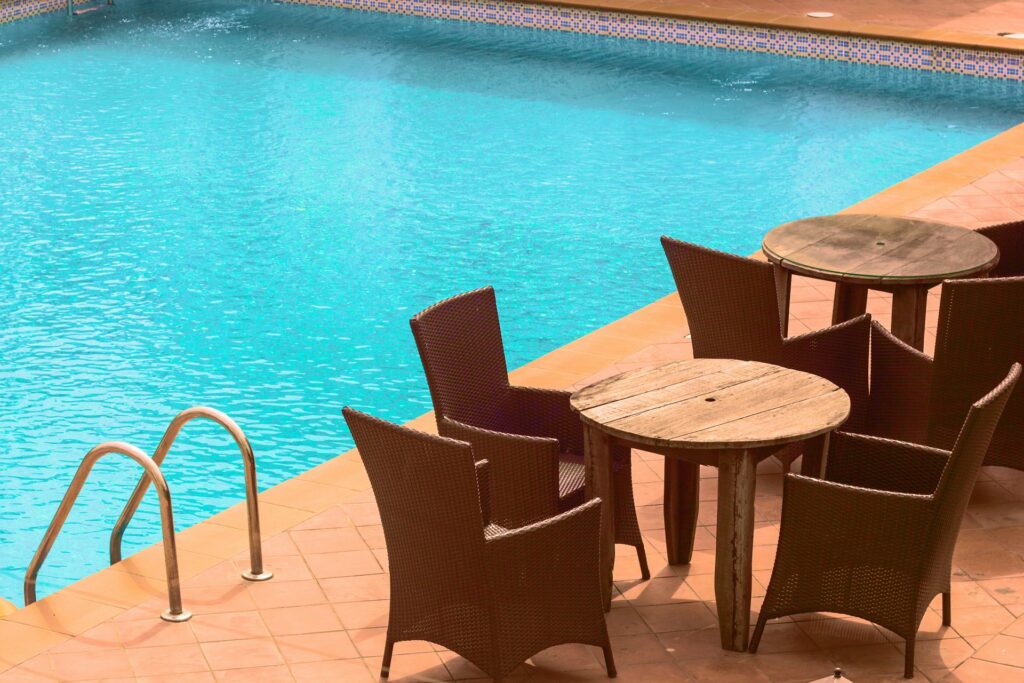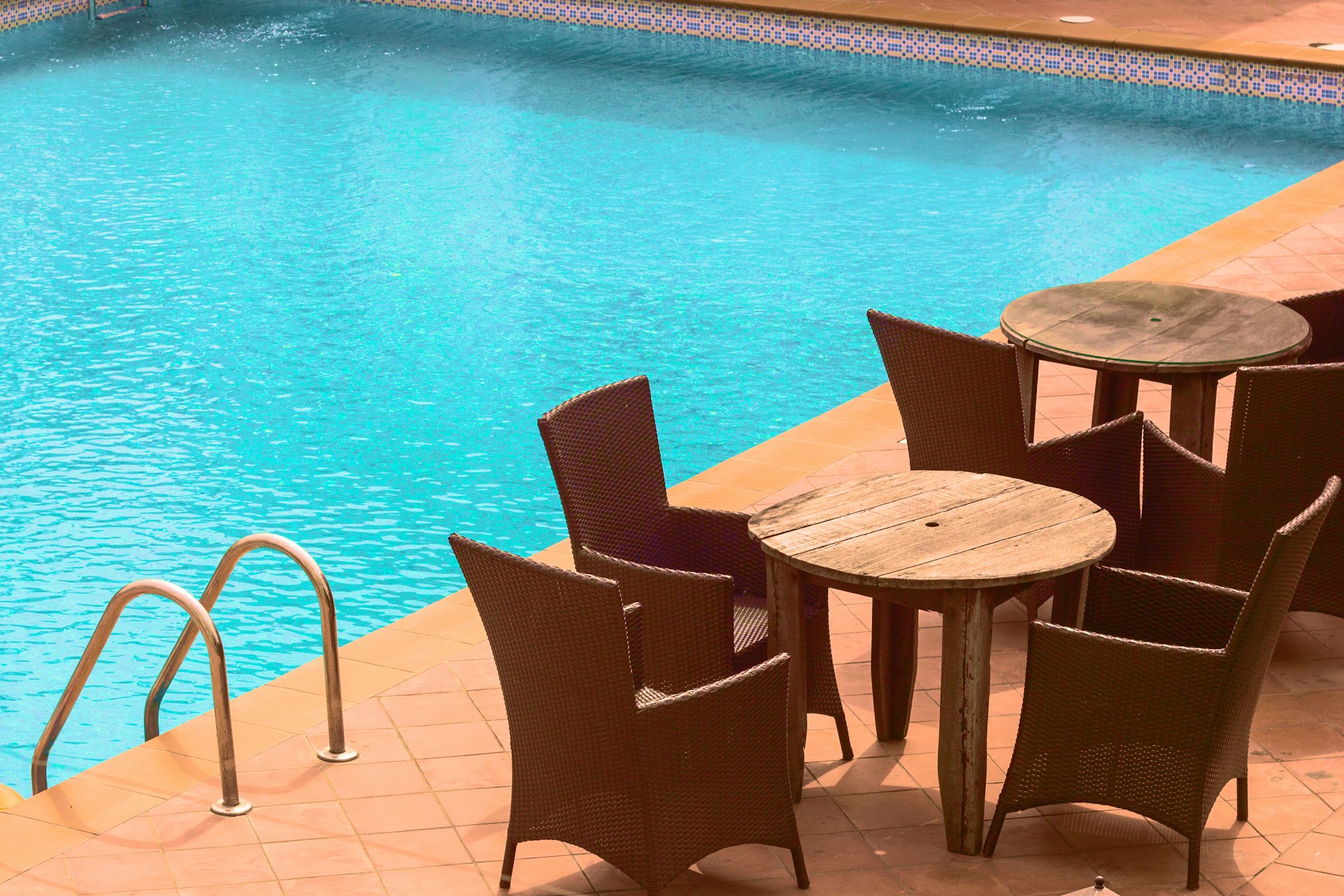Cyanuric Acid: What It Is and Why Your Pool Needs It
Believe it or not, there’s more to clean, clear water in your pool than regular cleanings, even alkalinity, and adding chlorine. One of the key components in pool maintenance is a substance known as cyanuric acid. In this article, we will be discussing what exactly cyanuric acid is and why your pool may need it.
What is cyanuric acid?
Cyanuric acid is a stabilizer that works to balance out your pool chemistry. Often referred to as a chlorine stabilizer or a pool conditioner, the primary role of cyanuric acid is to protect chlorine from breaking down from UV rays. It stabilizes the chlorine in the water, extending the life of this essential component of your pool water.
How does cyanuric acid work in a pool or hot tub?
Adding chlorine to your pool disinfects the water by killing bacteria and other unwanted microorganisms through hypochlorous acid. Although thoroughly effective, UV rays from sunlight can slowly break down chlorine and reduce the chemical’s effectiveness.
Cyanuric acid bonds with chlorine molecules, forming a protective shield around them. This bond slows the breakdown process, ensuring that the chlorine stays active longer — even on hot, sunny days.
What are the right levels of cyanuric acid?
To determine the appropriate levels of cyanuric acid, you need to factor in the amount of sunlight the pool may be exposed to. The average range should test between 4,030 to 7,050 parts per million (ppm), with pools that are exposed to increased levels of sunlight getting up to 8,070 ppm.
Why is it important to have optimum cyanuric acid levels in your pool?

Keeping your cyanuric acid levels in check is critical for optimal water quality. When levels are too low, chlorine can begin to deteriorate at a faster rate, reducing the disinfecting properties. If levels are too high, the oxidation process of chlorine becomes less effective, preventing it from sanitizing as intended.
What causes high cyanuric acid levels?
Unlike chlorine, cyanuric acid does not diminish over time. Once added, the product will remain there until the pool is partially or fully drained and replaced with new, fresh water. A high level of this acid is typically a result of incorrect usage, but it can also occur through a slow buildup over time.
What causes low cyanuric levels?
Homeowners that regularly supply their swimming pools with fresh water may discover that their cyanuric levels are lower than expected. Additionally, pool owners that do not use stabilized chlorine may notice that their acid levels are lower than what’s necessary.
What happens if cyanuric levels are too high?
When you have higher levels than normal, it creates something known as chlorine lock. When a state of chlorine lock is achieved, it renders any chlorine in the pool ineffective, regardless if the appropriate levels were administered prior to introducing cyanuric acid.
What happens if cyanuric acid levels are too low?
Low levels of cyanuric acid in your pool can result in the rapid breakdown of chlorine. This greatly reduces the effects of chlorine, and microorganisms such as algae and bacteria will begin to grow and spread through your pool water.
How to balance cyanuric acid levels in your pool
Keeping balanced levels is important for the stability of any pool — public or private — so how do we achieve that? Here are a few ways to balance the levels in a swimming pool or hot tub:
Dilute the water
The most common way to address high levels of is to dilute your water. In most cases, you can do this by draining a portion before replacing it with fresh water.
Use cyanuric acid reducer
For pool owners who don’t feel up to the task of draining and refilling their pool, there are other options. If you’d prefer a store-bought solution, there are cyanuric reducers that you can purchase to help lower the chemical levels.
Reverse osmosis filters
If you have access to reverse osmosis filters, these can also serve as an advanced solution to your balance your pool’s chemistry. The filter will reduce the levels of cyanuric acid and restore the water quality in your pool or hot tub.
Backwash the filter
While not as effective, backwashing your filter could help reduce levels in your water. Simply turn off your pool pump, set it to the backwash setting, and run it until the water in the sight glass runs clear. Then, you can revert the pump to normal.
Minimize stabilized chlorine
Struggling with high cyanuric levels? Consider using unstabilized chlorine products such as liquid chlorine. This solution allows you to perfectly control your pool’s chemical levels.
Balance your cyanuric acid levels with the pros at GPS Pools!
For expert advice and professional services for both commercial and residential pools and hot tubs, reach out to the pros at GPS Pools. We provide the expertise, equipment, and supplies you need to keep your pool in perfect balance for a happy home oasis.

